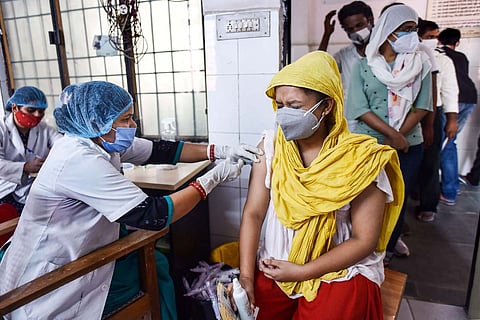

India presently has three vaccines against COVID-19 approved for use – Bharat Biotech’s Covaxin, Oxford-AstraZeneca’s Covishield (manufactured in India by Serum Institute of India), and the Russian vaccine Sputnik V (distributed in India by Dr Reddy’s Labs). All of these vaccines follow a two-dose regimen, i.e. you take one shot, and then after a few weeks’ time – depending on the vaccine – you take a second booster shot. While vaccination is a feasible long-term strategy against the pandemic, there have been several instances of people getting COVID-19 in between the two doses of vaccines or even after being fully vaccinated with two shots.
So, how does taking the vaccine help then? For one, the vaccine significantly reduces the risk of severe disease even if you do contract it. This means, if you get COVID-19 after being vaccinated, you are more likely to have a milder infection, doctors have observed. In fact, a study found that in the 4.7 million fully vaccinated people in Israel who were inoculated with the Pfizer-BioNTech mRNA vaccine, detectable infections were down by 30%. Even those who have had just one shot are likely to have a milder infection if they contract COVID-19. Dr Jacob John, a noted virologist, had told TNM, “The vaccine first dose induces immunity very partially only about two weeks later, and that too is yet to be defined very well due to lack of experience. Partial immune response will mean that a serious disease will be rendered milder.”
So, while the vaccine is not a safety shield – it may not provide 100% protection against COVID-19 – but it significantly reduces the chances of it developing into a severe infection requiring significant medical interventions. Further, some research also suggests that vaccination reduces transmissibility of the virus as well. According to a study, which involved the Pfizer and AstraZeneca vaccines, people who had taken the first dose were 38% to 49% less likely to pass on the virus to someone who is unvaccinated.
While more research is needed to ascertain just how much protection the vaccines offer against contracting the disease altogether, we do know that they reduce the risk of severe cases. Further, we don’t yet know how long protection of the vaccines will last in those who are vaccinated. “Experts are working to learn more about both natural immunity and vaccine-induced immunity,” the Centres for Disease Control says. Therefore, even if you are vaccinated – whether with one shot or with both doses – don’t stop wearing your mask, practising hand hygiene and maintaining two-metres physical distance as far as possible.